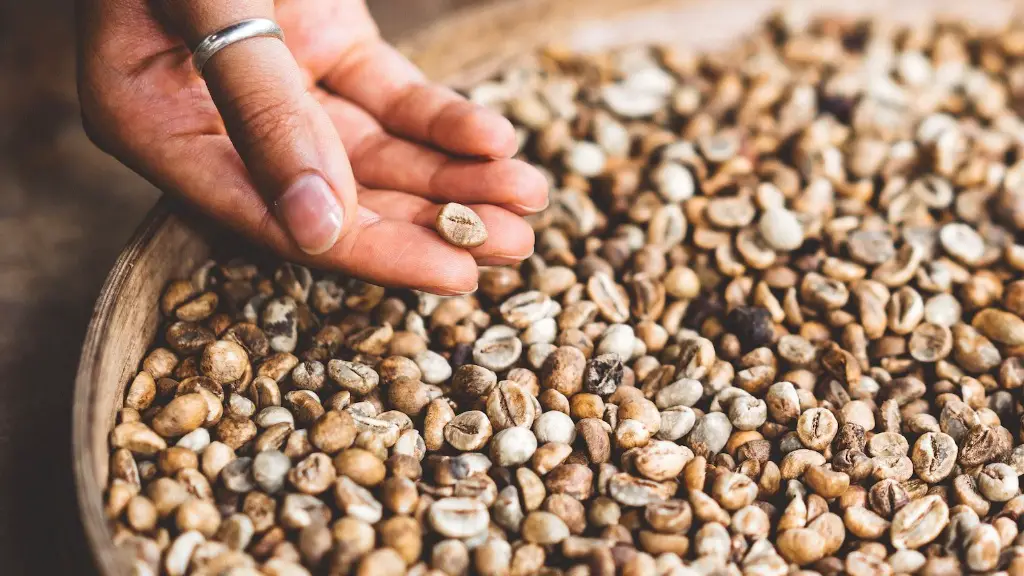Caffeine Intake
It is common knowledge that coffee contains caffeine; an antioxidant that can help improve alertness and focus. However, most people are not aware of how coffee affects the body if consumed after meals. As coffee has diuretic properties, drinking coffee after meals has been advised against in many cultures. Additionally, there is evidence that coffee can significantly reduce the absorption of minerals, vitamins, and proteins.
It is well documented that caffeine is a stimulant. It can cause an increase in heart rate, blood pressure, and can lead to feelings of adrenaline coursing through the body. In moderate doses, it stimulates the production and release of several neurotransmitters in the brain, making one feel more alert and awake.
The diuretic effect of caffeine is largely due to the fact that it encourages the kidneys to produce more urine. This means that drinking coffee after a meal may result in an increase in the excretion of essential fluids and electrolytes, resulting in dehydration and nutrient loss.
Apart from dehydration, drinking coffee after meals can also cause a drop in the body’s absorption of many important minerals and vitamins, as well as proteins. Caffeine interferes with iron absorption and thus, when consumed in large quantities, can lead to anemia. It may also reduce the absorption of calcium, magnesium, and zinc.
Finally, while it may provide a boost of energy after a meal, it is essential to bear in mind that excess caffeine intake can lead to insomnia, restlessness, irritability, and headaches. It is, therefore, not a good idea to drink coffee after meals on a regular basis.
Health Benefits of Coffee
Despite what has been said about drinking coffee after meals, there are also several health benefits associated with consuming this popular beverage in moderation. For starters, there is evidence that coffee can protect against cardiovascular diseases, diabetes, and even certain types of cancer.
One specific type of antioxidant in coffee, called chlorogenic acid (CGA), has antimicrobial and anticancer properties, and it may even protect against oxidative damage, which is linked to a range of health issues. Studies have also found that CGA works to reduce blood sugar levels, making it an ideal drink for those at risk of diabetes.
Coffee is also anti-inflammatory, which means it can help reduce the risk of inflammatory conditions such as osteoporosis, arthritis and gout. On top of that, studies have revealed that drinking 3-4 cups of coffee each day can help reduce the risk of stroke and other cardiovascular conditions.
Finally, coffee has been found to reduce the risk of Parkinson’s disease and other neurological disorders, due to its ability to stimulate the brain to produce dopamine, a neurotransmitter that is essential for cognitive function.
Coffee Intake Advice
Despite the many potential health benefits of drinking coffee, it is important to remember that it is not recommended to consume large amounts of coffee. The best approach is to ensure moderation and to spread out coffee consumption over the course of the day.
It is also advisable to avoid drinking coffee with food, and to wait at least an hour after eating meals before consuming it. This will reduce the effects of caffeine on the body, as well as prevent dehydration and nutrient loss.
Finally, it is important to bear in mind that even if one is looking to get the health benefits from coffee, it should be of the highest quality, as low-quality coffee beans can contain potentially harmful toxins and contaminants.
Alternatives to Coffee
There are several alternatives available to coffee drinkers who wish to avoid the effects of caffeine. One popular choice is herbal teas, which offer a range of health benefits. Herbal teas such as chamomile and jasmine are packed with antioxidants, and are easy to prepare.
Green tea is another good choice, as it can help boost metabolism and reduce the risk of cardiovascular disease. It is worth noting, however, that green tea also contains caffeine, although in smaller amounts than coffee.
For those looking for a caffeine-free pick-me-up, there are several supplements available such as Rhodiola rosea and Bacopa monnieri. Rhodiola rosea is well-known for its ability to improve mood, reduce stress, and increase energy. On the other hand, Bacopa monnieri is said to enhance cognitive function and memory.
Managing Coffee Intake
When it comes to drinking coffee, it is important to be aware of the potential side effects, and to take steps to ensure that it is consumed in moderation. It is also important to bear in mind that coffee is not suitable for everyone and can have interact with certain medications and health conditions.
While it is generally safe to consume one or two cups of coffee each day, pregnant women and those with cardiovascular conditions should avoid it. Additionally, it is not recommended that those under 18 years of age consume more than one cup a day.
Finally, while it is not necessarily harmful to drink coffee after meals, it is best to wait an hour or so after eating before doing so. This will give the body time to digest the food, and prevent any potential dehydration or nutrient loss.




